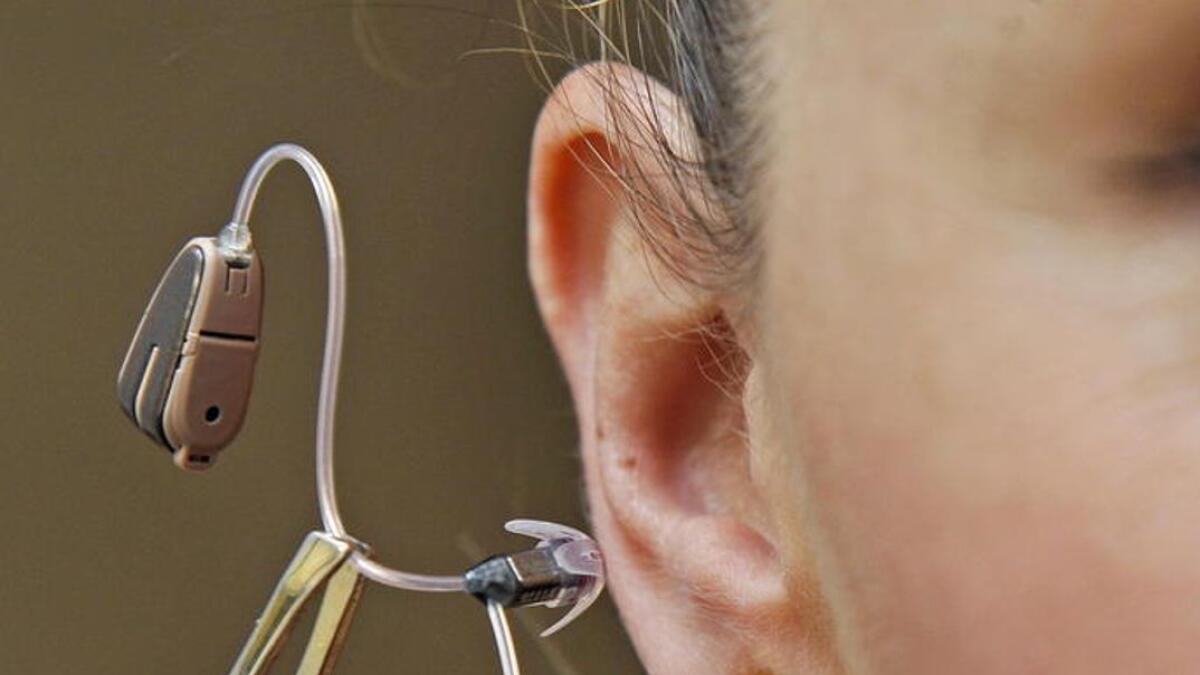As the population ages, the number of elderly individuals with hearing loss is on the rise. However, many of these individuals refuse to wear hearing aids, which can lead to serious health risks. Dr Ahmad Al Shamsi, a renowned otologist and cochlear implant surgeon in Abu Dhabi, emphasized the importance of wearing hearing aids to prevent chronic diseases like dementia and Alzheimer’s. He shared a concerning case where a 75-year-old man with untreated hearing loss isolated himself in his room because he couldn’t hear anyone talk, highlighting the negative impact of social isolation on overall health.
Dr Shamsi pointed out that untreated hearing loss can result in social isolation, less brain stimulation, and ultimately increase the risk of developing Alzheimer’s and dementia. Citing various studies, he noted that regular hearing aid use has been linked to lower mortality rates and reduced risk of dementia. He also highlighted the psychological effects of hearing loss on elderly individuals who are reluctant to use hearing aids due to stigma associated with old age, urging them to prioritize their health and well-being by utilizing hearing devices.
The cost of untreated hearing loss is substantial, with the World Health Organization warning that 1 in 4 people worldwide will be living with some form of hearing loss by 2050. The economic impact of unaddressed hearing loss amounts to $980 billion annually, impacting healthcare expenses, educational support, productivity, and societal costs. Dr Shamsi stressed the importance of early detection and treatment of hearing loss to mitigate these economic consequences, emphasizing that the UAE health authorities provide free access to hearing aids, surgeries, medical treatments, and cochlear implants in public hospitals.
In light of the challenges faced by elderly individuals with untreated hearing loss, Dr Shamsi urged them to overcome the stigma associated with hearing aids and prioritize their health. By utilizing hearing aids, individuals can improve their quality of life, remain active and engaged, and prevent the onset of chronic diseases like Alzheimer’s and dementia. The doctor highlighted the detrimental effects of untreated hearing loss on workplace productivity, emphasizing the importance of addressing hearing impairments across all age groups, including children, to prevent speech delays and educational setbacks.
The detrimental effects of untreated hearing loss extend beyond social isolation and psychological impact, leading to severe health consequences and increased risk of mortality. Dr Shamsi shared real-life cases illustrating the challenges faced by elderly individuals with hearing loss and the importance of early intervention. With the prevalence of hearing loss expected to increase in the coming years, it is crucial for individuals to prioritize their hearing health and take proactive steps to address any hearing impairments promptly. By raising awareness about the importance of hearing aids and advocating for regular check-ups and treatment, individuals can safeguard their overall well-being and prevent the negative consequences of untreated hearing loss.










